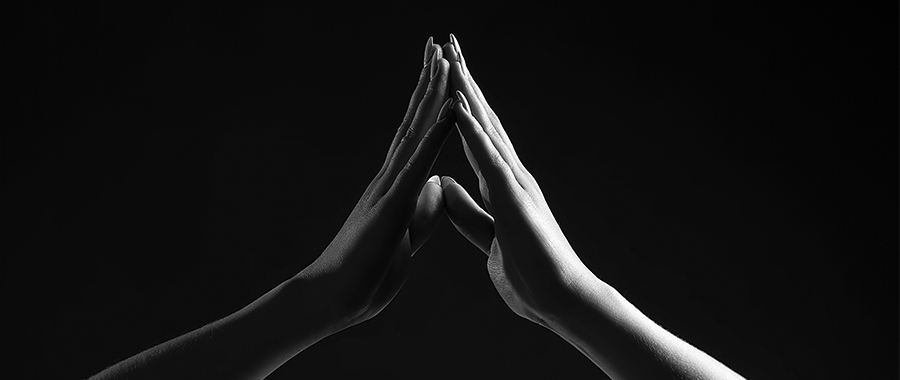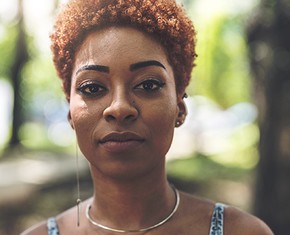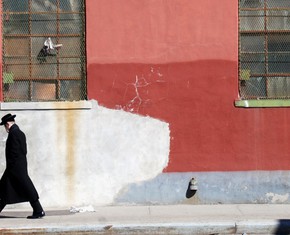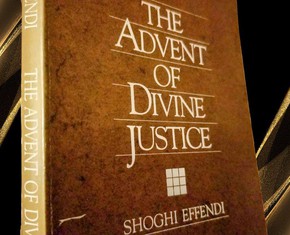The views expressed in our content reflect individual perspectives and do not represent the authoritative views of the Baha'i Faith.
As we look beyond our own spiritual well-being and that of our immediate family, we start to consider the community and the world beyond us.
All of the great advocates for peace have recognized that racial unity is a prerequisite for a peaceful world:
O ye beloved of God! Know ye, verily, that the happiness of mankind lieth in the unity and the harmony of the human race, and that spiritual and material developments are conditioned upon love and amity among all men. – Abdu’l-Baha, Selections from the Writings of Abdu’l-Baha, p. 286.
The Baha’i teachings say that uniting with others requires new kinds of behavior and new levels of understanding that we have never reached before. If we acknowledge the need for nations to coexist peacefully, we must also eliminate those unhealthy racial divides and conflicts that have long plagued humanity—for racial unity forms a crucial prerequisite to the progress and health of all humankind.
Racial unity brings the promise of untold possibilities and hopes fulfilled. It means the end to age-old misguided notions of superiority and inferiority, and the beginning of a new way of life for all civilization.
Realizing racial unity ensures the true happiness and progress of humanity and guarantees a world where spiritual qualities, not physical attributes, become the measure of one’s character and chances in life. Racial unity is not a result of political measures to enact laws, but is the result of a spiritual transformation. It is something we are all capable of achieving if we will only take the first step. Racial unity is not sameness, nor is it the enforcement of the will of one ethnicity over another. It is the celebration of our common humanity as we work together to build strong communities, treating each other as members of one family.
So let’s examine some of the challenges we have to overcome to achieve this noble destiny, especially here in the United States, and explore what hope the Baha’i teachings offer that it can, in fact, be attained.
The notion that people can and should be classified by race, and thereby subjected to either prejudicial or preferential treatment, is America’s most challenging issue. It is the cause of untold daily injustices and pervades every area of social interaction in the United States. It has been institutionalized in the form of birth certificates, census forms, and job applications requiring people to categorize themselves by the very tenuous attribute of race.
In the vernacular, we often employ color names to indicate races which, upon reflection, describe no human pigmentation. Upon examination, there is no one on this planet who is truly pure white, black, red, or yellow. Still, the use of these terms to describe people persists. This is strange because if we look closely at ourselves, each of us has a variety of colors over our bodies, not just one color. Standing side by side, if we look for colors rather than races, we can easily see that collectively humankind presents a continuum of complex hues. There are no groups of colors and certainly no clear boundaries separating colors. The Baha’i teachings point this out:
I pray that you attain to such a degree of good character and behavior that the names of black and white shall vanish. All shall be called human. – Abdu’l-Baha, The Promulgation of Universal Peace, p. 46.
Why, then, do we continue to group people by race? The answer is that we have learned to see something that is not really there.
It is generally accepted by modern-day anthropologists that all human beings share common ancestral roots that originated on the African continent millions of years ago. When humans began migrating to other parts of the world where the climate and environment were different, the process of natural selection ensured the survival and reproductive success of those who were best suited to their environment. This led to the perpetuation of whatever genetic qualities were best suited to each particular environment.
This evolutionary fact means that the physical variations we see today in people from different parts of the world are, therefore, all variations within a single species—the human species. There is only one race, the human race, and whatever terms we may use to categorize each other merely result from many generations of misguided notions about what superficial physical differences mean:
A critic may object, saying that peoples, races, tribes and communities of the world are of different and varied customs, habits, tastes, character, inclinations and ideas, that opinions and thoughts are contrary to one another, and how, therefore, is it possible for real unity to be revealed and perfect accord among human souls to exist?
In answer we say that differences are of two kinds. One is the cause of annihilation and is like the antipathy existing among warring nations and conflicting tribes who seek each other’s destruction, uprooting one another’s families, depriving one another of rest and comfort and unleashing carnage. The other kind which is a token of diversity is the essence of perfection and the cause of the appearance of the bestowals of the Most Glorious Lord. – Abdu’l-Baha, Selections from the Writings of Abdu’l-Baha, pp. 290-291.
We rarely stop to examine the meanings of the words we use to categorize one another or ask why terms like “Caucasian” are seen as somehow more correct than “White.” Unfortunately, when terms referring to colors are replaced with terms referring to supposed geographical origins, one set of false premises simply replaces another. In fact, despite the findings of the national census, very few of us can trace our ancestry to people who emigrated to these shores from the Caucasus Mountains of western Asia.
While we consider words that describe particular groups of people, it is important to realize that there can be legitimate historical and social reasons for doing so. For example, the term “African American” is not just a racial designation. It carries with it a legitimate and profound sense of heritage, a shared common social and cultural experience which spans a remembered and oftentimes painful past across a significant number of generations. It describes a line of heritage that has seen many terms applied to it, some positive and some extremely hurtful: “Negro,” “Colored,” “Black,” “Afro-American,” “African American.” The fact that these designations have changed over time in compliance with an ever-shifting sense of political correctness should suggest to us not only that the terms are arbitrary but also that the concept of race itself and the divisions that it creates are arbitrary as well.
















Comments
Sign in or create an account
Continue with Googleor